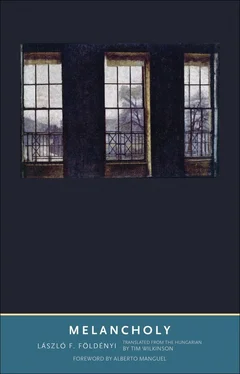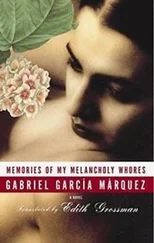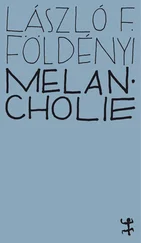The analysis of the phrase “one dies” reveals unambiguously the kind of Being which belongs to Being-towards-Death. In such a way of talking, death is understood as an indefinite something which, above all, must duly arrive from somewhere or other, but which is proximally not yet present-at-hand for oneself, and is therefore no threat. . Dying is leveled off to an occurrence which reaches
Dasein
, to be sure, but belongs to nobody in particular. . In the way of talking which we have characterized, death is spoken of as a “case” which is constantly occurring. Death gets passed off as always something “actual”; its character as a possibility gets concealed, and so are the other two items that belong to it — the fact that it is non-relational and that it is not to be outstripped. . This evasive concealment in the face of death dominates everydayness so stubbornly that, in being with another, the “neighbors” often still keep talking the “dying person” into the belief that he will escape death and soon return to the tranquillized everydayness of the world of his concern.
(Martin Heidegger, Being and Time , § 51).
For Romantics who died early, death itself was life come to fruition; it was not something that would ensue sometime in the future but that threatened one day by day. Confronting death was by no means a flight from life: for Romantic melancholics, there was nothing to escape from. Death thereby became a possibility, an experiment in which the individual was finally able to find himself; only in death was he able to become absolute, since life is full of failures and dispersions. “No more let Life divide what Death can join together,” Shelley wrote on the death of Keats (“Adonais,” 53). We successors are of the opinion that an ebbing of the vital force is responsible for premature death. But anyone who, even if only fleetingly, has instinctively felt his own ephemerality and irreplaceability, and has come to realize that there are boundaries beyond which solitude is the sole possible state, is well aware that at such moments the “life force” does not ebb but springs forth. For the Romantics, the whole of life was one such moment; the explosion of the vital force destroyed degenerated life on behalf of Life, as it were, under the spell of another state that was, on all counts, more promising than the one at hand. They acquired superhuman strength merely in order to die like that; they bore witness not only to the freest death but also to the bewilderment and seclusion in which they, too, could recount, along with no less melancholic Job, the words he addressed to God: “My face is foul with weeping, and on my eyelids is the shadow of death” (Job 16:16).
Chapter 7. LOVE AND MELANCHOLIA
Romantic creative genius consisted in the melancholic acceptance of death, the recognition that the individual, yearning for self-determination, was unable to achieve that goal in this world. Creative genius rejects any compromise; melancholia, however, warns that this rejection is not just the result of careful deliberation, a conscious decision, but also a matter of fate: melancholic geniuses cannot do other than choose death. The attraction of melancholics to suicide was always conspicuous; during the period of Romanticism, this attraction, by the force of circumstances, entered into an alliance with creative genius. Originally, “genius” meant a guardian spirit — it is an irony of history that in the modern era it was death , of all things, that sat as a guardian spirit on man’s shoulders. Nothing was more typical of the Romantic era, however, than that public opinion held love , next to death, to be the other genius. If love was a genius, and it, along with death, nurtured melancholia, then it stood to reason that love and melancholia were also bound to meet. The correlation of love and death peaked with Romanticism ( Liebestod ), though for the ancient Greeks Eros and Thanatos had predicated each other.
The signs of melancholia started to appear well before Romanticism — in point of fact, at the time when Christianity was being consolidated, when love “broke away” from the net of human relations and inevitably became solitary. Not just in the sense that the lover and the object of love definitively broke away from each other, but also in that love itself became homeless — it could not find its place in this world because it did not wish to acknowledge finalities, definitive restrictions, and, being an earthly phenomenon, it had no business in the other world. It was Christian philosophy, born in the Roman Empire, that first posed questions about the individual, as well as those about individuality and uniqueness, and the role of love and affection became problematical around the same time: the lover was left to himself, yet because his love was nevertheless directed at something, this solitude was not just loneliness but also deprivation . If a melancholic’s most tormenting problem, from the Middle Ages on, has been that of self-determination, of sovereignty, then this difficulty has applied with double force to a lover.
There are two concepts of love in the history of European culture, and they radically, though not conspicuously, differ from each other. One was that of the Greeks, which thinkers like Spinoza and Hegel wanted to revive. According to this school of thought, love does not result in a radical break in the system of human relationships but fits in seamlessly among the other social relations of everyday life. The lover’s desire is associated with remembering, says Empedocles (see Fragments , § 64), and the act of remembering vouches for the recognition of the unity of being. Of the two forces that move the world, anger and strife (  ) separates everything, whereas fondness (
) separates everything, whereas fondness (  ) ties everything together. The basis of love (
) ties everything together. The basis of love (  ) is liking: its essence is binding, unity, and perfection. Love and affection are not separated from the other spheres of life; indeed, they are, rather, the precondition for their unity. A lover does not just experience his own love: it is through love that the underlying harmony and enclosure of existence is realized for him. The object of love guides the lover toward deeper cognition — nothing is more natural than that Plato, in Phaedrus , should connect the initiate, the philosopher, the madman, the obsessed, and the seer, and designate them all with the single word “lover” (
) is liking: its essence is binding, unity, and perfection. Love and affection are not separated from the other spheres of life; indeed, they are, rather, the precondition for their unity. A lover does not just experience his own love: it is through love that the underlying harmony and enclosure of existence is realized for him. The object of love guides the lover toward deeper cognition — nothing is more natural than that Plato, in Phaedrus , should connect the initiate, the philosopher, the madman, the obsessed, and the seer, and designate them all with the single word “lover” (  ). But as we have seen, precisely those people whom Plato collectively calls lovers were susceptible to melancholia; it was through them that melancholia appeared in its completeness. Thus, love in antiquity was not untouched by melancholia. After all, if love and affection facilitate a deeper understanding of being and existence, then ultimately they bring the lover to a recognition of the state of cosmic closure (enclosure). Therefore love, though it strikes one as a happy and comforting state, since it brings a lover closer to the beloved object, is actually endangered at every moment. Eros is an intermediary , creating a connection between heaven and earth, and if lovers do not watch out, they can easily come to grief; Eros will enslave them and carry them off into an unknown domain, toward fateful insights. One is at the mercy of Eros, and that is not only a joyful state but also a suffering. The Greeks regarded passionate love as burdensome, something one suffered almost like an illness; hence the name used for passionate love was
). But as we have seen, precisely those people whom Plato collectively calls lovers were susceptible to melancholia; it was through them that melancholia appeared in its completeness. Thus, love in antiquity was not untouched by melancholia. After all, if love and affection facilitate a deeper understanding of being and existence, then ultimately they bring the lover to a recognition of the state of cosmic closure (enclosure). Therefore love, though it strikes one as a happy and comforting state, since it brings a lover closer to the beloved object, is actually endangered at every moment. Eros is an intermediary , creating a connection between heaven and earth, and if lovers do not watch out, they can easily come to grief; Eros will enslave them and carry them off into an unknown domain, toward fateful insights. One is at the mercy of Eros, and that is not only a joyful state but also a suffering. The Greeks regarded passionate love as burdensome, something one suffered almost like an illness; hence the name used for passionate love was  , which also meant illness, misfortune, and suffering. (In Euripides’ Hippolytus , for example, the notions of
, which also meant illness, misfortune, and suffering. (In Euripides’ Hippolytus , for example, the notions of  and
and  are presented together in every case.) Eros, unruly and uncurbed, can push one into perpetual homelessness: with due prudence and circumspection, however, lovers can avoid that fate and partake of (mutual) happiness:
are presented together in every case.) Eros, unruly and uncurbed, can push one into perpetual homelessness: with due prudence and circumspection, however, lovers can avoid that fate and partake of (mutual) happiness:
Читать дальше

 ) separates everything, whereas fondness (
) separates everything, whereas fondness (  ) ties everything together. The basis of love (
) ties everything together. The basis of love (  ) is liking: its essence is binding, unity, and perfection. Love and affection are not separated from the other spheres of life; indeed, they are, rather, the precondition for their unity. A lover does not just experience his own love: it is through love that the underlying harmony and enclosure of existence is realized for him. The object of love guides the lover toward deeper cognition — nothing is more natural than that Plato, in Phaedrus , should connect the initiate, the philosopher, the madman, the obsessed, and the seer, and designate them all with the single word “lover” (
) is liking: its essence is binding, unity, and perfection. Love and affection are not separated from the other spheres of life; indeed, they are, rather, the precondition for their unity. A lover does not just experience his own love: it is through love that the underlying harmony and enclosure of existence is realized for him. The object of love guides the lover toward deeper cognition — nothing is more natural than that Plato, in Phaedrus , should connect the initiate, the philosopher, the madman, the obsessed, and the seer, and designate them all with the single word “lover” (  ). But as we have seen, precisely those people whom Plato collectively calls lovers were susceptible to melancholia; it was through them that melancholia appeared in its completeness. Thus, love in antiquity was not untouched by melancholia. After all, if love and affection facilitate a deeper understanding of being and existence, then ultimately they bring the lover to a recognition of the state of cosmic closure (enclosure). Therefore love, though it strikes one as a happy and comforting state, since it brings a lover closer to the beloved object, is actually endangered at every moment. Eros is an intermediary , creating a connection between heaven and earth, and if lovers do not watch out, they can easily come to grief; Eros will enslave them and carry them off into an unknown domain, toward fateful insights. One is at the mercy of Eros, and that is not only a joyful state but also a suffering. The Greeks regarded passionate love as burdensome, something one suffered almost like an illness; hence the name used for passionate love was
). But as we have seen, precisely those people whom Plato collectively calls lovers were susceptible to melancholia; it was through them that melancholia appeared in its completeness. Thus, love in antiquity was not untouched by melancholia. After all, if love and affection facilitate a deeper understanding of being and existence, then ultimately they bring the lover to a recognition of the state of cosmic closure (enclosure). Therefore love, though it strikes one as a happy and comforting state, since it brings a lover closer to the beloved object, is actually endangered at every moment. Eros is an intermediary , creating a connection between heaven and earth, and if lovers do not watch out, they can easily come to grief; Eros will enslave them and carry them off into an unknown domain, toward fateful insights. One is at the mercy of Eros, and that is not only a joyful state but also a suffering. The Greeks regarded passionate love as burdensome, something one suffered almost like an illness; hence the name used for passionate love was  , which also meant illness, misfortune, and suffering. (In Euripides’ Hippolytus , for example, the notions of
, which also meant illness, misfortune, and suffering. (In Euripides’ Hippolytus , for example, the notions of  and
and 










